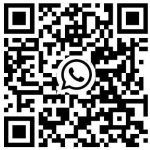Before we compare, it’s important to note that the International Baccalaureate subject scores depend on the number of students taking each IB exam. Some subjects have fewer test-takers, which can affect the 7-point rate to some extent. Therefore, the 7-point rate alone cannot fully reflect the difficulty of an exam, but it serves as an important reference point.
Overall Comparison of the 6 International Baccalaureate Subject Groups
Let’s begin by comparing the 7-point rates of the six major subject groups in the IB diploma program, ranked from high to low 7-point rates:
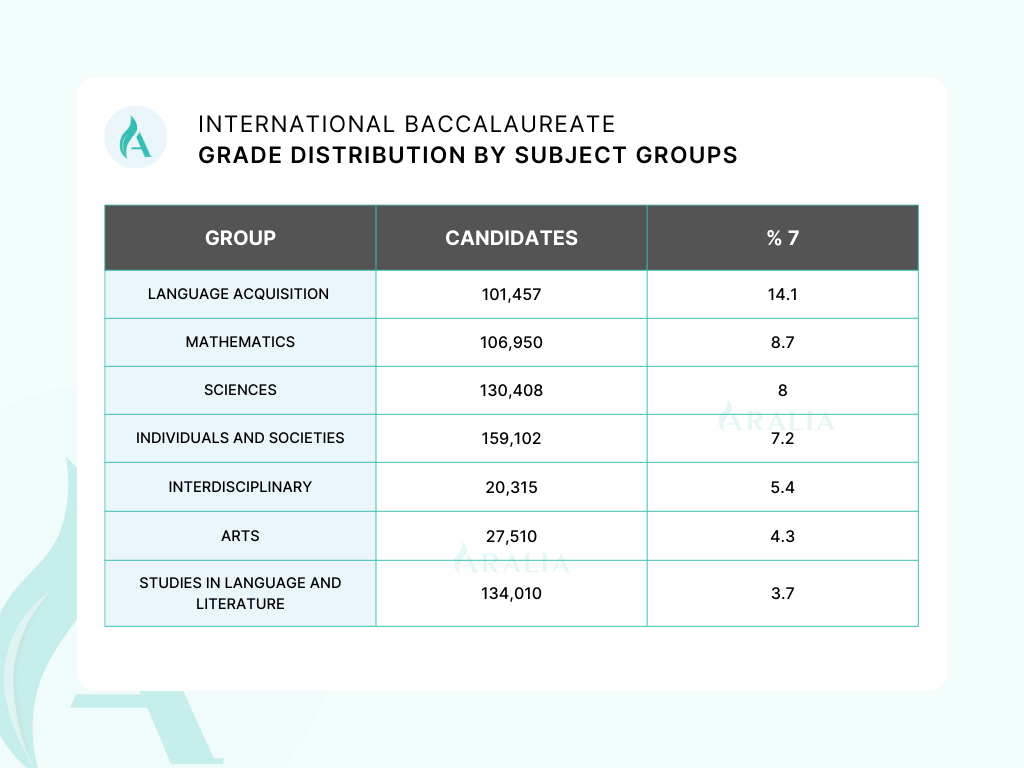
Overall from the data table, we see that:
- “Language acquisition, Mathematics, and Science” exhibit a relatively high quantity of 7-point rates, correlating with a substantial number of test-takers.
- The “Studies in Language and Literature” subject group, despite having the second-highest number of test-takers, has the lowest 7-point rate, indicating a relatively high level of difficulty.
- The “Individual and Societies” subject group, with the highest number of test-takers, falls in the middle concerning the 7-point rate.
In the below comparison of courses within each subject group, we will mainly look at 2023 exam data for IB courses with a large number of candidates and popular course selections. We will also discuss the average score of the May 2023 exam and the 7-point rate of the May 2022 exam.
IB Studies in Language and Literature (Language A)
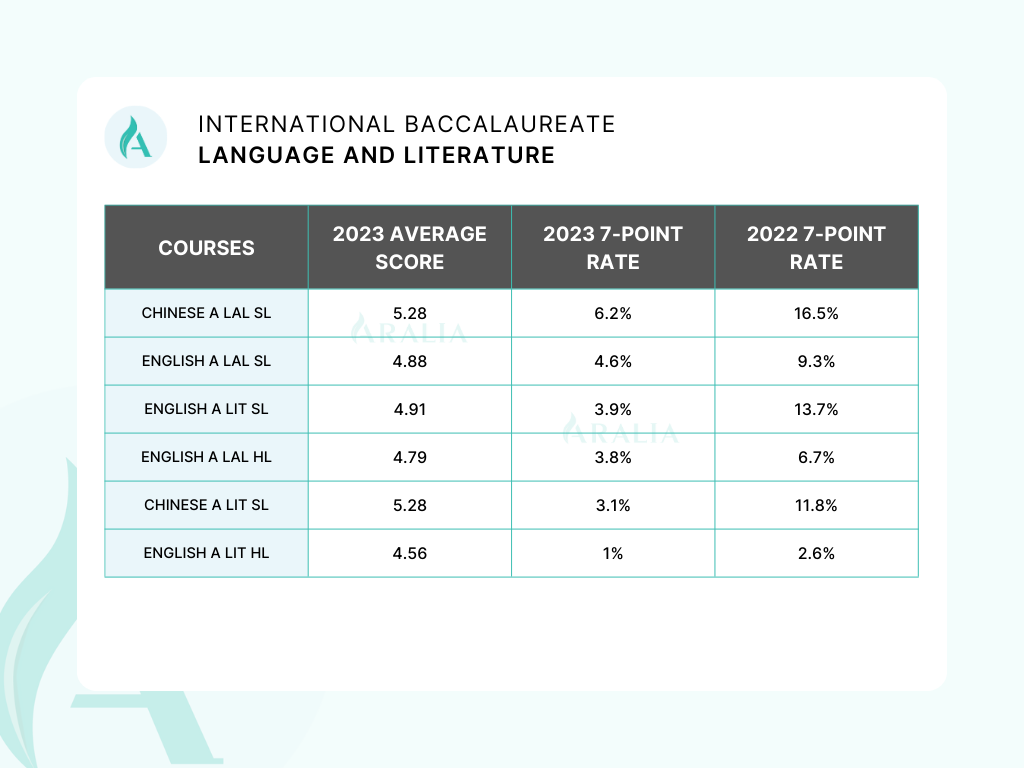
Language A is taken in your native language, or the language you have been studying for an extended amount of time, where students analyze written and spoken text from various literary forms and nonliterary text types. In this subject group, courses like Chinese A language, Chinese A literature, English A language, and English A literature have relatively low 7-point rates and average scores, not exceeding 10%. Notably, this year’s 7-point rates have decreased compared to the previous year.
IB Language Acquisition (Language B)
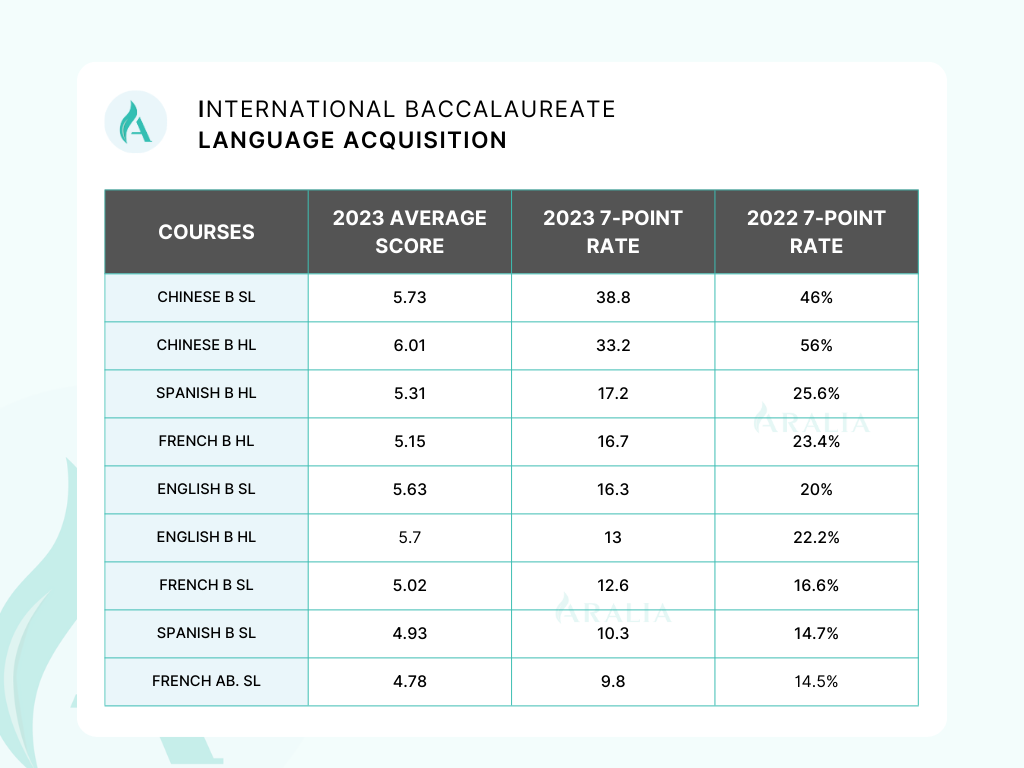
In contrast with Language A, Language B subjects typically involve students learning a foreign language from another region. In this subject group, courses like Chinese B, English B, Spanish B, and French B have relatively high 7-point rates and average scores.
However, except for French AB, the 7-point rate for other courses is more than 10%, and the SL and HL courses of Chinese B are both over 30%. The HL-level of Chinese B stands out with an impressive 6-point average score.
Compared with the 7-point rate in last year’s exam, the 7-point rate in this year’s exam has decreased.
IB Mathematics
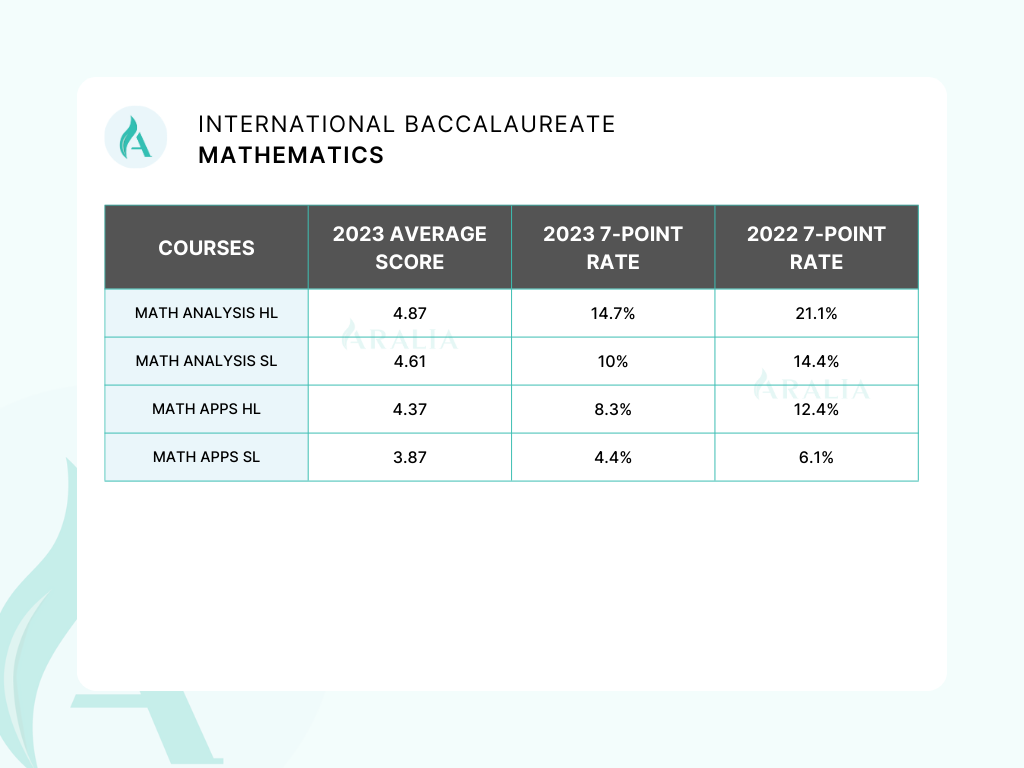
Within the Mathematics subject group, students in IB Mathematics Analysis and Approaches HL outperformed students in IB Mathematics Applications and Interpretation in terms of the percentage of students scoring 7 points. Interestingly, the HL-level courses exhibit relatively higher 7-point rates compared to SL-level courses.
IB Sciences
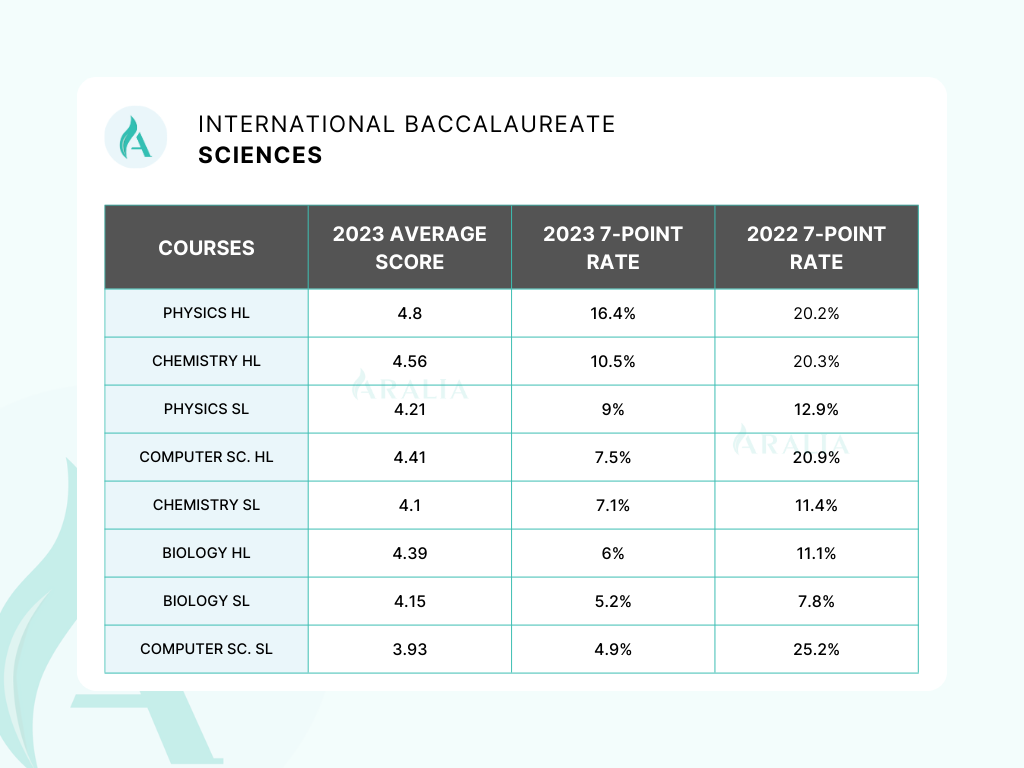
Subjects like Physics, Chemistry, Biology, and Computer Science within the Sciences subject group generally have higher 7-point rates and average scores. Physics HL stands out with the highest 7-point rate at 16.4%, while Biology, despite having the most test-takers, shows a lower 7-point rate.
Individuals and Societies
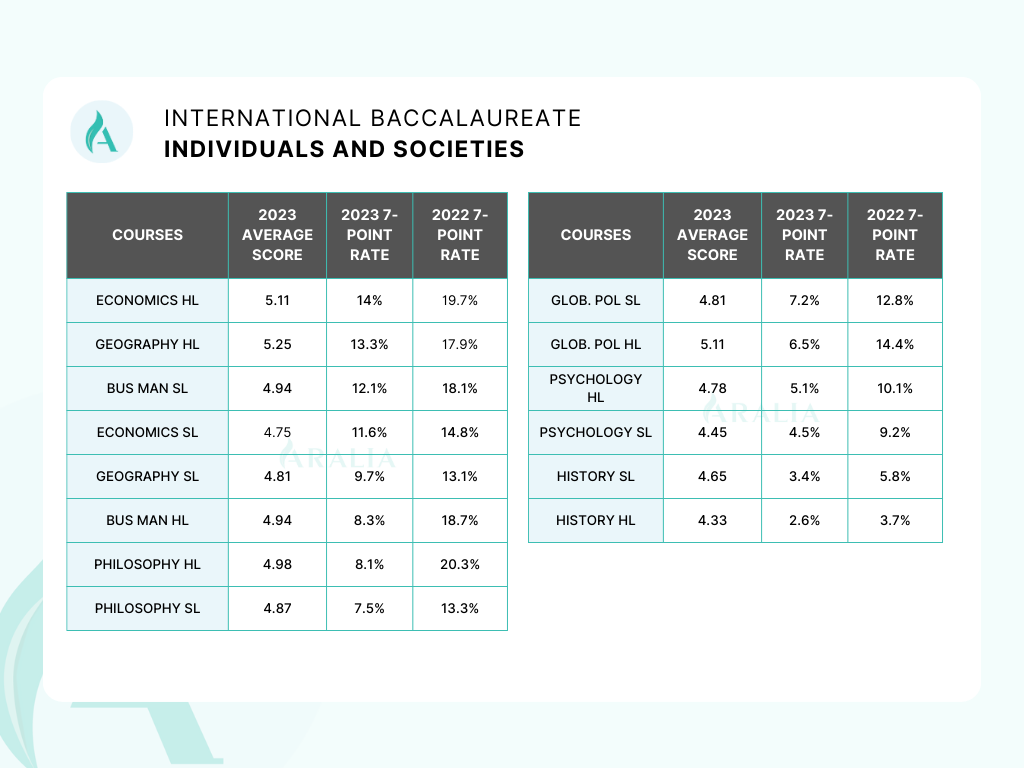
The Individuals and Societies subject group contains a wide variety of courses, such as Economics, Geography, Business Management, Philosophy, Global Politics, History, and Psychology. Despite having the highest number of test-takers, History has the lowest 7-point rate among these courses.
IB Arts
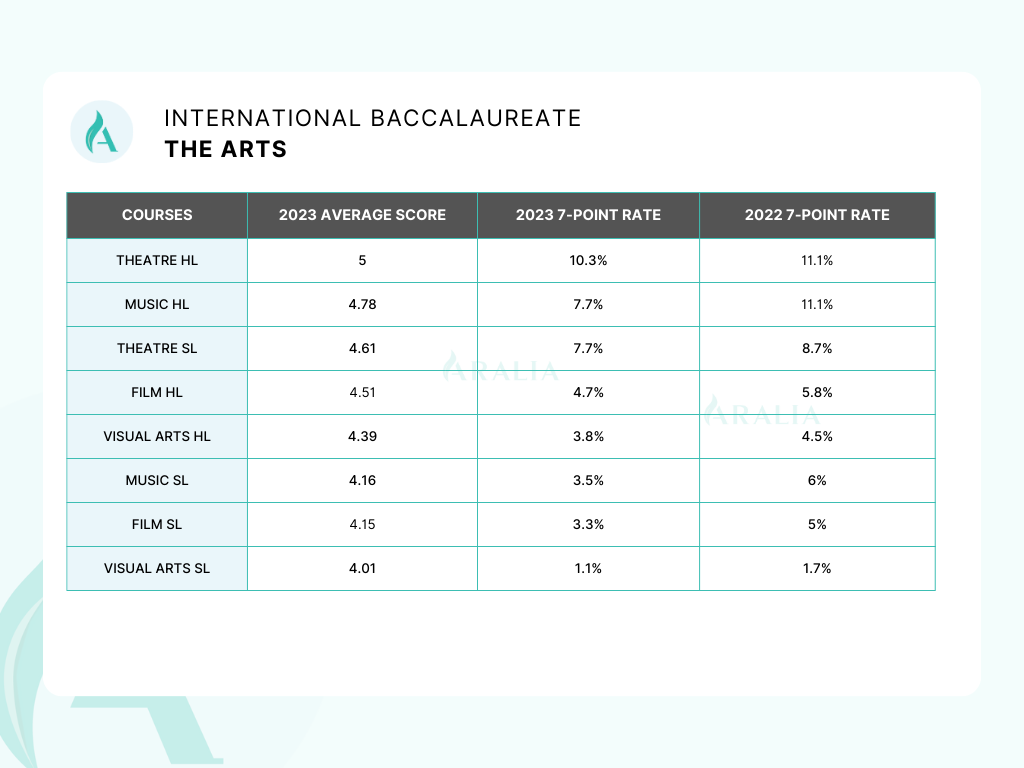
There are limited data points available for examination, since there are a lower number of test-takers in the Arts subject group. In addition, few of these subjects use official exams to determine students’ understanding of the subjects and instead rely on both external and internal assessments and more in-depth projects and presentations.
These insights are derived from official IB website data. For the most accurate and up-to-date information, please refer to the official IB Statistical Bulletin.
In conclusion, while course difficulty varies based on individual strengths and interests, this data serves as a valuable reference for IB students navigating their course selection journey. We recommend students choose subjects aligned with your passions and academic abilities for a fulfilling IB experience.
Get Ready for International Baccalaureate Subjects with Aralia
Prepare for the International Baccalaureate (IB) with Aralia Education’s summer courses in math designed to elevate your skills for academic success. Join our esteemed teaching team for comprehensive IB preparation, where our tutors focus on understanding each student’s unique needs and academic level. At Aralia, our commitment is to empower students to surpass their academic expectations.











